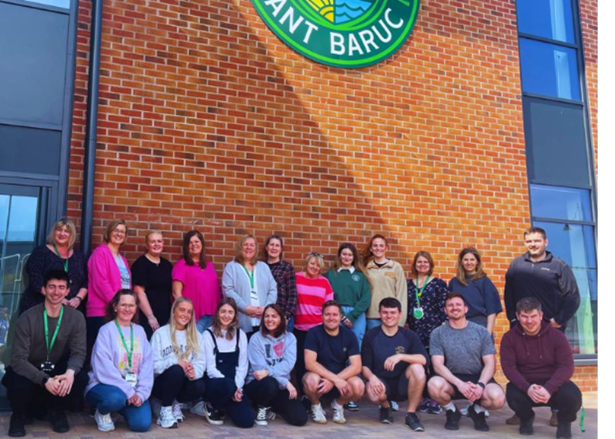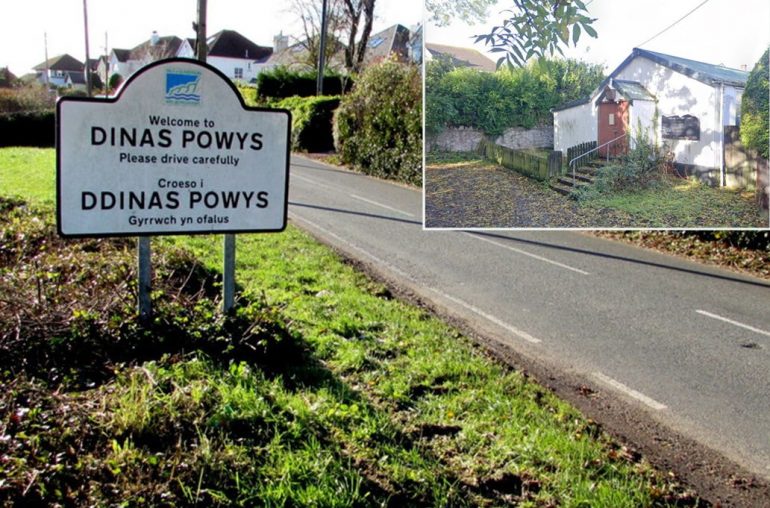Dinas Powys residents are the latest to take issue with agreements struck between developers and the council, having been disappointed by broken promises in the past
RESIDENTS campaigning against a major new housing plan say they have been left with “little faith” in the planning process because of broken promises on previous developments.
Community group Protect Dinas Powys objects to plans to build 1,750 houses, which would represent a near 45% growth of the town by 2036. They point to potential problems created by the growthin traffic, sewage limitations and primary school capacity.
In cases such as this, the contracts between councils and private developers to build the houses often contain an agreement that the developer will provide something for the good of the community to help mitigate any problems.
These deals are knows as ‘106 agreements’.
The Dinas Powys group points to three instances over the last five years where 106 agreements between the Vale of Glamorgan (VoG) council and developers of new propeties have not been kept, or have faced significant delays.
It was reported in August 2023 that VoG Council was considering legal action against developers who had continually failed to build promised community facilities, despite building and selling commercial properties at a faster pace.
The most recent example was a plan to demolish Eastbrook Methodist Church and build a bungalow. The developer agreed to pay £27,631 towards affordable housing in the area as part of the agreement, before later retracting the promise, saying the plan was unaffordable if they had to pay the £27,000, which the council allowed.
“The failings in the past leave people with little faith in the planning system,” said Laura Hanks from Protect Dinas Powys.
What are 106 agreements?
Often referred to as planning obligations, a 106 agreement is where the developer agrees to provide something positive for a community to mitigate any negative impacts the development may have on the area.
There are two main types of planning obligation: financial and in-kind.
A financial contribution is simple; a developer gives a council money which can be used to improve public transport, educational facilities, or anything else which may be impacted by the new development.
An in-kind contribution is where the developer directly provides facilities for the area, such as a playground or affordable housing.
In most cases a 106 agreement will be signed before a development begins. With in-kind developments, completion is expected to be at a similar time to the development itself.
Why should you care?
Between April 2022 to 2023 the Vale of Glamorgan was given £3.7 million in various 106 agreements and residents hope that money will be used to improve the local area.

Once these facilities have been built, they can provide a boost for a local area. Ysgol Sant Baruc, which opened in 2022, was heralded for “state of the art” educational facilities. The school was part of the Barry Waterfront 106 agreement for a development that began in 2009.
However, the opening date of the school was repeatedly pushed back. In 2020, WalesOnline cited “continued negotiations between the council and developers” as a reason for the final move, from September 2021 to 2022.
Protect Dinas Powys and the Dinas community council both said that a lack of awareness of 106 agreements allows developers to get away with delays because there is no real backlash from the public.
This isn’t just a Vale of Glamorgan problem
In July 2023, Harlow Council in Essex applied for an injunction against three major developments, which they believed had failed on their 106 agreements. The council listed a sports pavilion, a community centre and retail units as some of the conditions they had failed to fulfil.
The BBC reported in October 2023 that the Windrush Place estate in Oxfordshire is still missing facilities it was promised more than five years ago, and residents are now considering legal action.
Last month, Southwark Council in London promised to act against developers who have not delivered the affordable housing promised in developments over the past two decades.
These are just a few examples from across the UK of frustrated residents and councils planning legal action against developments.
- To learn more about 106 agreements, click here



